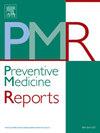Self-perceived food literacy is positively associated with diet quality among Dutch individuals with type 2 diabetes
IF 2.4
3区 医学
Q2 PUBLIC, ENVIRONMENTAL & OCCUPATIONAL HEALTH
引用次数: 0
Abstract
Objective
This cross-sectional study was conducted to investigate associations between food literacy and diet quality among individuals with type 2 diabetes.
Method
In the Netherlands in 2022/2023, 166 individuals with type 2 diabetes (66.8 ± 10.3 years, BMI 28.2 ± 4.3 kg/m2) completed questionnaires. Self-perceived food literacy (SPFL) was assessed using the 29-item SPFL-scale (score 1–5, higher scores indicating higher food literacy). Diet quality was assessed with a brief frequency questionnaire (FFQ; score 0–160, higher scores indicating higher diet quality). Associations between food literacy and diet quality were evaluated with linear models.
Results
Mean diet quality score was 107 ± 16 and mean food literacy score was 3.7 ± 0.4. Linear regression showed that 1-point higher food literacy scores were associated with 14-point higher diet quality scores (β adjusted 14.0; 95 % CI: 8.4 to 19.6). Individuals with above-median food literacy scores had diet quality scores that were 12.5 points higher (95 % CI: 7.7 to 17.3) than individuals with below-median scores. Food preparation skills, healthy budgeting, social and conscious eating, resilience and resistance, and healthy snack styles, were associated with better diet quality.
Conclusion
Associations between several food literacy domains and diet quality in people with type 2 diabetes indicate the importance of promoting food literacy in this group.
在荷兰2型糖尿病患者中,自我认知的食物素养与饮食质量呈正相关
目的本横断面研究旨在探讨2型糖尿病患者饮食素养与饮食质量之间的关系。方法在2022/2023年荷兰,166例2型糖尿病患者(66.8±10.3岁,BMI 28.2±4.3 kg/m2)完成问卷调查。自我感知食物素养(SPFL)采用29项SPFL量表进行评估(得分1-5分,得分越高表明食物素养越高)。饮食质量评估采用简短频率问卷(FFQ;得分0-160分,得分越高表明饮食质量越好)。用线性模型评估食品素养与饮食质量之间的关系。结果平均饮食质量评分为107±16分,平均饮食素养评分为3.7±0.4分。线性回归显示,食品素养得分高1分与饮食质量得分高14分相关(β调整为14.0;95% CI: 8.4至19.6)。食品素养得分高于中位数的个体,其饮食质量得分比得分低于中位数的个体高12.5分(95% CI: 7.7至17.3)。食物准备技能、健康的预算、社交和有意识的饮食、适应力和抵抗力,以及健康的零食风格,都与更好的饮食质量有关。结论:2型糖尿病患者饮食素养与饮食质量之间存在相关性,提示在该人群中提高饮食素养具有重要意义。
本文章由计算机程序翻译,如有差异,请以英文原文为准。
求助全文
约1分钟内获得全文
求助全文
来源期刊

Preventive Medicine Reports
Medicine-Public Health, Environmental and Occupational Health
CiteScore
3.90
自引率
0.00%
发文量
353
 求助内容:
求助内容: 应助结果提醒方式:
应助结果提醒方式:


